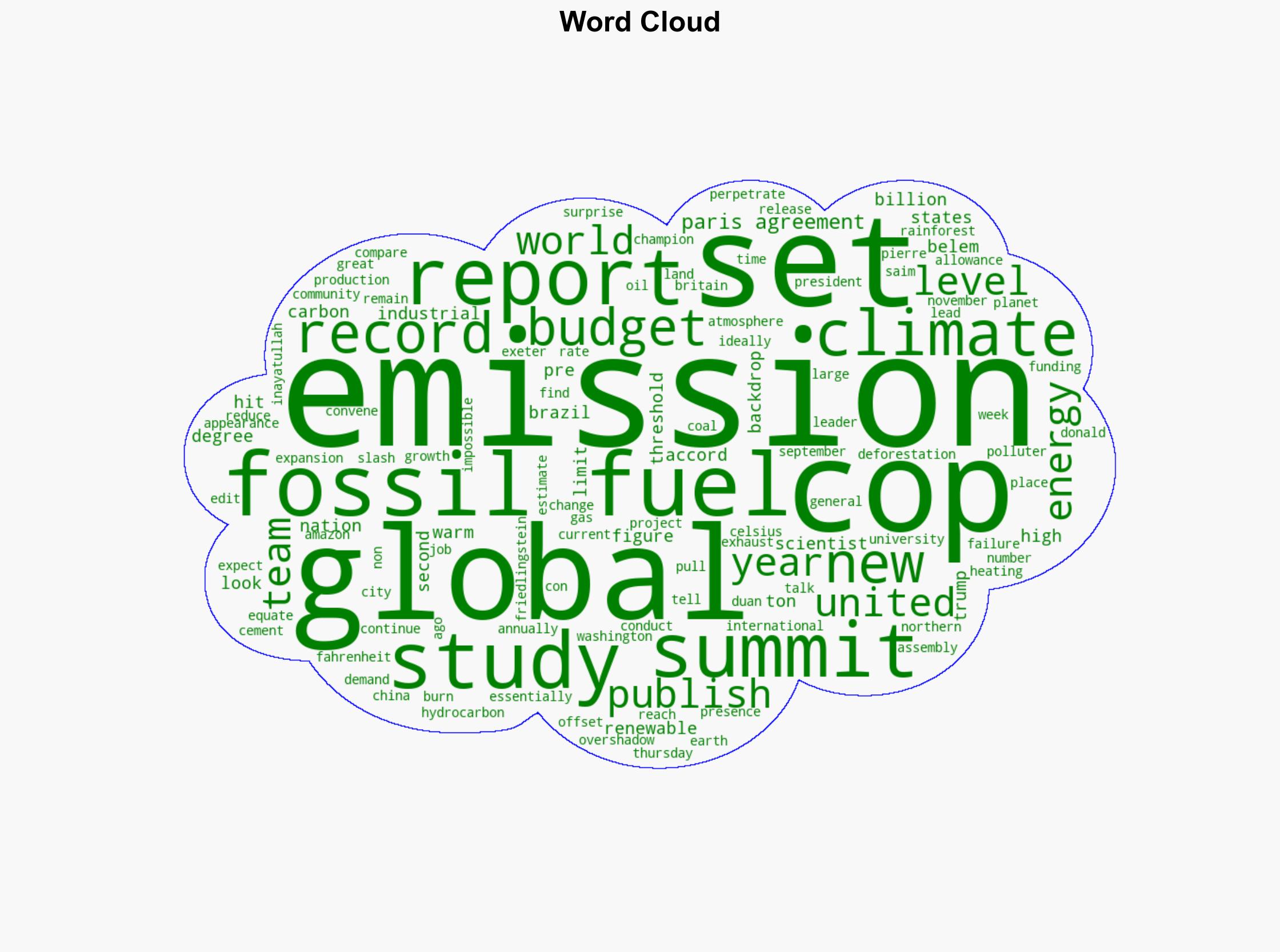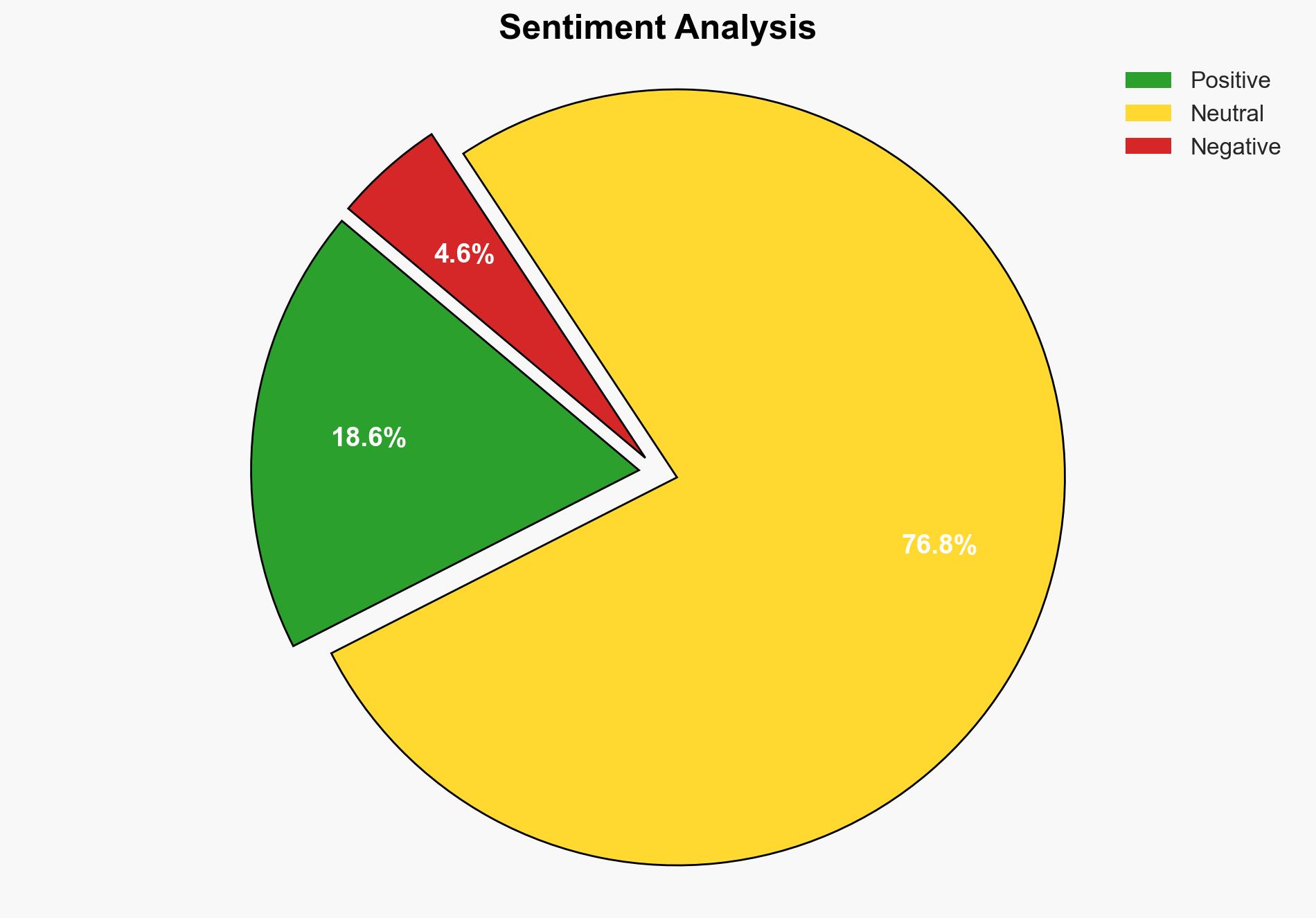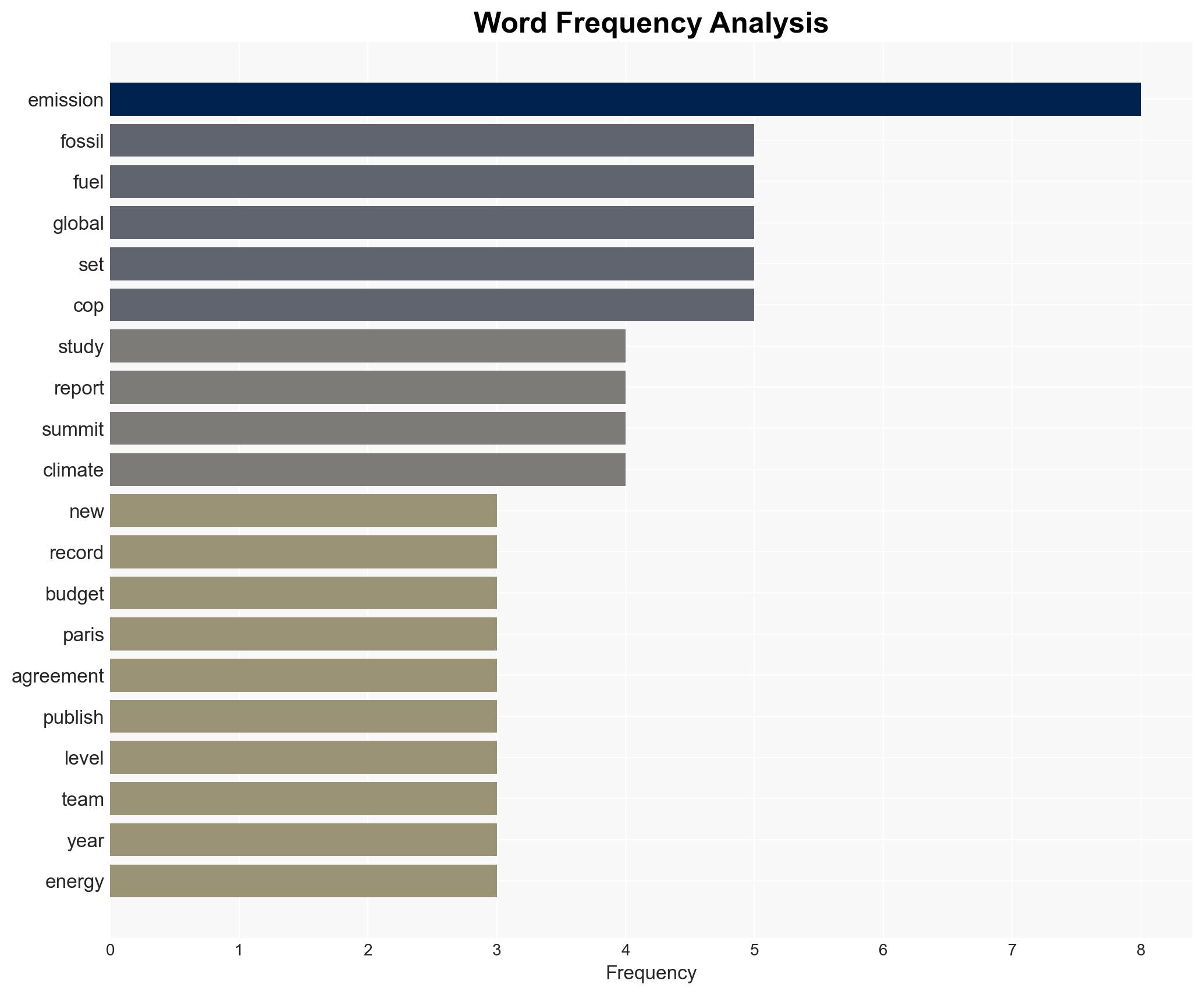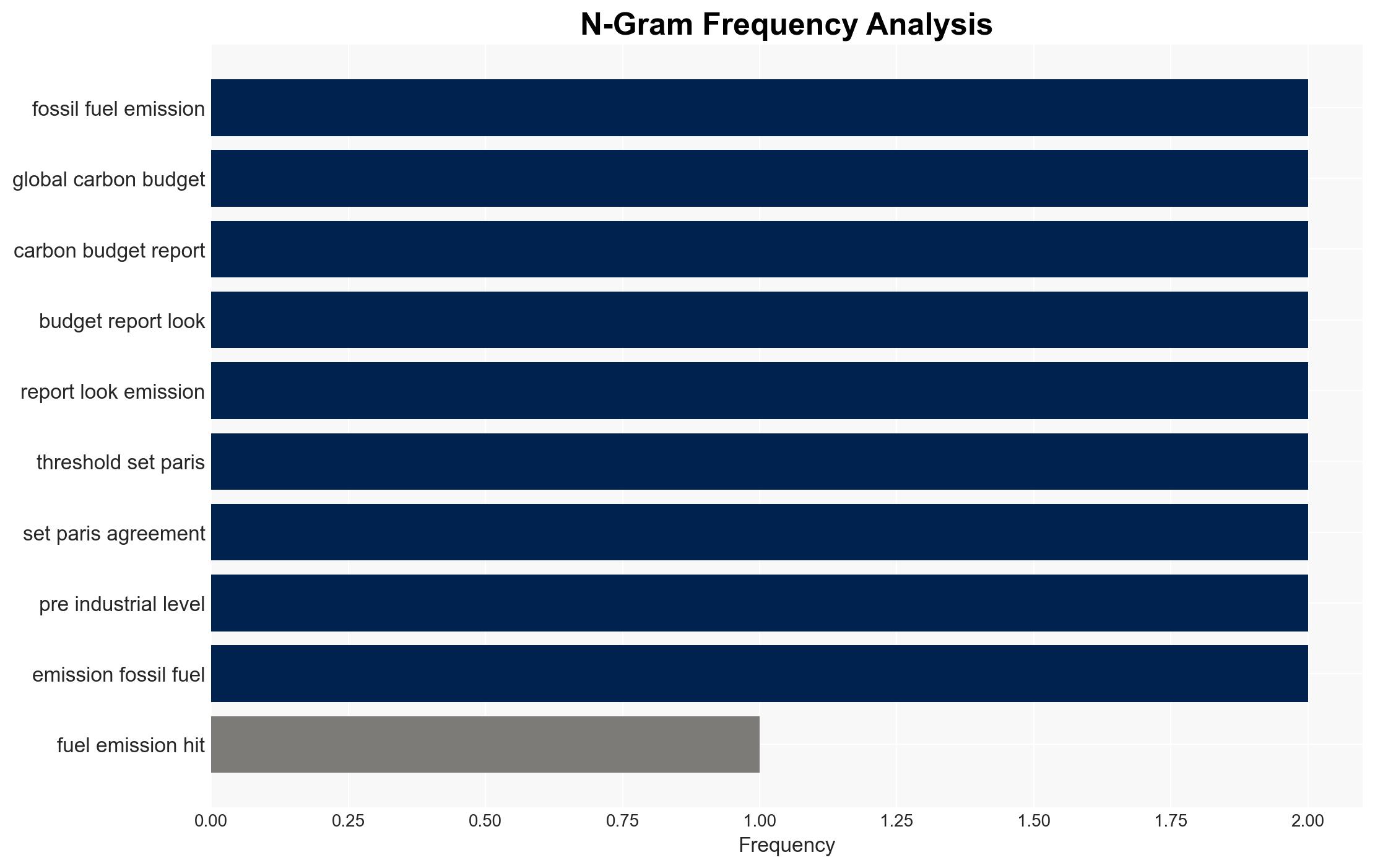Fossil fuel emissions to hit new record in 2025 study – DW (English)
Published on: 2025-11-13
AI-powered OSINT brief from verified open sources. Automated NLP signal extraction with human verification. See our Methodology and Why WorldWideWatchers.
Intelligence Report: Fossil fuel emissions to hit new record in 2025 study – DW (English)
1. BLUF (Bottom Line Up Front)
Fossil fuel emissions are projected to reach a new record high by 2025, significantly undermining global efforts to meet the Paris Agreement targets. The most supported hypothesis is that despite the expansion of renewable energy, the increase in energy demand and geopolitical factors will lead to continued reliance on fossil fuels. Confidence Level: Moderate. Recommended action includes enhancing international cooperation and policy enforcement to curb emissions and accelerate renewable energy adoption.
2. Competing Hypotheses
Hypothesis 1: The global increase in fossil fuel emissions is primarily driven by rising energy demands that outpace the growth of renewable energy sources. This is the most likely scenario given current trends and the slow transition to renewable energy.
Hypothesis 2: Geopolitical factors, such as the withdrawal of major countries from climate agreements and the prioritization of economic growth over environmental concerns, are the main drivers of increased emissions. This hypothesis is plausible but less supported by current evidence compared to the first hypothesis.
3. Key Assumptions and Red Flags
Assumptions: The analysis assumes that current trends in energy consumption and policy will continue without significant intervention. It also assumes that technological advancements in renewable energy will not accelerate sufficiently to offset fossil fuel use.
Red Flags: The potential for political shifts, such as changes in government policies or international agreements, could alter the trajectory of emissions. Additionally, economic disruptions or technological breakthroughs could significantly impact energy consumption patterns.
4. Implications and Strategic Risks
The continued rise in fossil fuel emissions poses significant risks, including exacerbating climate change impacts such as extreme weather events, sea-level rise, and biodiversity loss. Politically, failure to meet climate targets could lead to increased tensions between nations and undermine international agreements. Economically, reliance on fossil fuels could result in stranded assets and financial instability as the world shifts towards cleaner energy sources.
5. Recommendations and Outlook
- Enhance international cooperation to enforce climate agreements and set more ambitious emission reduction targets.
- Invest in research and development to accelerate the deployment of renewable energy technologies.
- Encourage policies that incentivize energy efficiency and the reduction of carbon footprints in industries.
- Best-case scenario: Rapid technological advancements and strong international cooperation lead to a significant reduction in emissions.
- Worst-case scenario: Continued geopolitical tensions and economic priorities result in unmitigated emissions growth, exacerbating climate change impacts.
- Most-likely scenario: Emissions continue to rise moderately, with incremental progress in renewable energy adoption insufficient to meet climate targets.
6. Key Individuals and Entities
Pierre Friedlingstein (Lead Scientist, University of Exeter), President Donald Trump (Former U.S. President), United Nations General Assembly.
7. Thematic Tags
Climate Change, Fossil Fuels, Renewable Energy, Paris Agreement, International Cooperation, Geopolitical Factors
Structured Analytic Techniques Applied
- Causal Layered Analysis (CLA): Analyze events across surface happenings, systems, worldviews, and myths.
- Cross-Impact Simulation: Model ripple effects across neighboring states, conflicts, or economic dependencies.
- Scenario Generation: Explore divergent futures under varying assumptions to identify plausible paths.
Explore more:
Regional Focus Briefs ·
Daily Summary ·
Methodology





